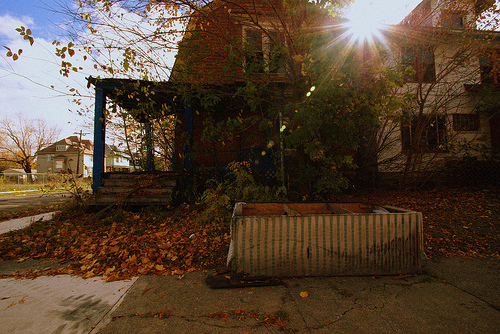When it comes to investing in real estate, all conventional buyer’s logic has to go out the window. While most people buy homes or apartments based on a number of factors, some of those factors aren’t acceptable for real estate investors — not if they want to be successful. For instance, while absolutely falling in love with the bay windows in the living room because they’ll frame your crystal collection perfectly is a valid reason for buying a home, it’s not a valid reason for investing in real estate.
Instead, successful real estate investors have to be logical, pragmatic and forward-looking. They have to be able to look beyond the current market and condition of the house and see the potential for profit. After all, investing in real estate has a completely different goal than buying a house for residential purposes: the end game is profit. Keeping that in mind will help you get prepared for investing in real estate.
With that said, here are three things that you should be doing right now to help you up your chances at being a successful real estate investor.


light by sj carey, on Flickr. This work is licensed under a Creative Commons Attribution-NonCommercial-NoDerivatives 4.0 International License.
Learn About the Real Estate Industry
This might sound basic, but you have no idea how many investors go into a market from a pure buyer’s standpoint. This makes absolutely no sense. Just as a swimmer would be foolish to say that he could swim in anything (can you swim in hot lava?), an investor cannot say he can simply invest in anything (can you invest in real estate?). The point here is that you have to research the market you are entering and find out how the market works. What are your goals and how will you reach them with your current finances? The path leads through the real estate market. What type of ownership are you looking for? Leasehold interest or ownership interest? This will decide whether you take full control of your land and the buildings that are on it (ownership) or if you grant those rights to a tenant (leasehold) in exchange for rent. What is the current state of the market? Why is it cheaper on that side of the town than this one? How much haggle room do you have on the price if you work with a realtor versus without? The bottom line is you have to do your homework if you want to get the grades. Successful real estate investors always make the grade.
Identify Your Risk Tolerance
The amount of money that you are willing to invest should also represent an appropriate amount of money that you are willing to lose. Throwing your entire life savings into a real estate investment isn’t the smartest idea, but some do it anyways since they have a high tolerance for risk. You need to identify your risk tolerance so that you can enter at the appropriate market level. Every piece of investing you do has some extent of risk, but you can lower your exposure to that risk in one market while increasing your exposure (and often thereby your gains) in another. For example, choosing between the private and public real estate investment markets is a good way to manage your risks. Private real estate markets allow you to earn rent by renting out your property to tenants. This would be done either through yourself or a property manager. The risk here is higher since you are in direct control of the property and everything that goes on. With public real estate investments, you simply purchase shares in a publicly traded real estate company in the form of investment trusts. You purchase your shares on the stock market and as the trust gains value and collects rent from its properties, you are paid dividends. Since you are not responsible for the company, there is less direct damage or good you can do to the value, thereby decreasing your exposure to risk. Instead, you let professional real estate investors handle the business while you simply sit back and earn on their gains.
Learn the Difference Between Real Estate Investing and Trading
Finally, you should understand that real estate trading is a part of investing, but not the same thing. Trading is a type of private equity investment, most commonly known as “flipping properties”. This is your typical “buy low and sell high” type of investment where you play the market to try and turn over (or flip) your properties for the highest resale profits. The goal here is to minimize your costs of ownership by turning the quickest profit possible. Short term flippers typically rely on the changes in the market to appreciate the value of their property rather than making improvements on the property. Long term flippers often invest more money in fixing up the property as a way to increase the value. Both are excellent forms of real estate investing and should be considered by anyone who wants to be a successful real estate investor.
This article is courtesy of James Andrews from US Probate Leads, a sought after online resource for realtors as well as investors.
